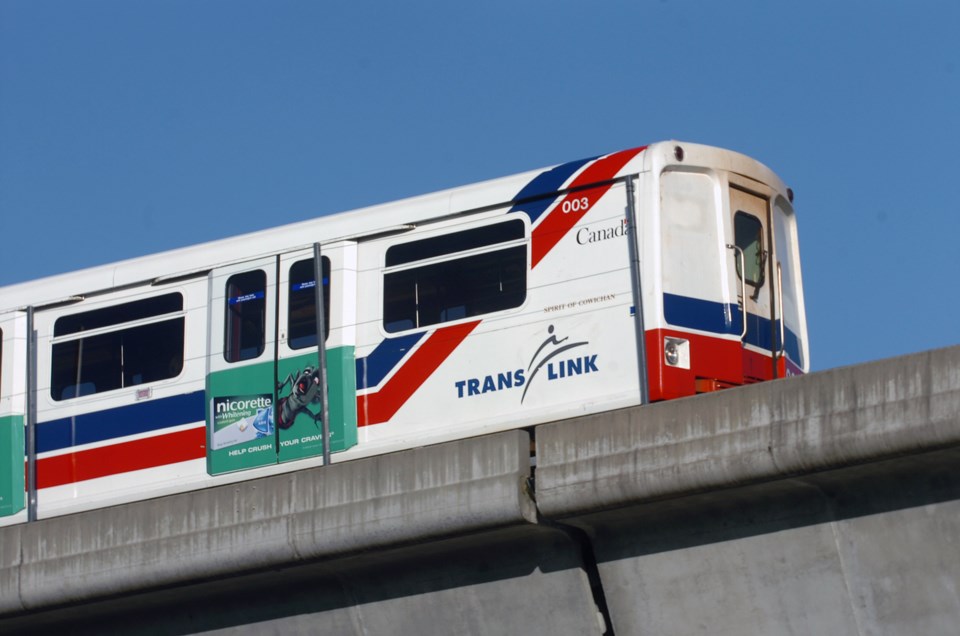TransLink is under fire once again, after an easy fare evasion tactic was discovered with the Compass Card before its rollout. However, Burnaby Mayor Derek Corrigan said he's not surprised that the card has been riddled with controversy.
The Compass Card and its fare gate system, which was brought in to deal with fare evasion, has a loophole for riders to avoid paying for all zones - and TransLink has said it was aware of the potential for it.
"I've been warning about these problems well before they started instituting them," Corrigan told the Burnaby NOW. "It doesn't surprise me. I imagine many, many other ways for people who are determined to avoid fares will find a way to evade them."
The Compass Card was recently embroiled in controversy when the projected $171 million cost to implement the system increased by $23 million.
"And that's just the tip of the iceberg because they buried as much of those expenses as possible. It doesn't count the renovation at Metrotown or Broadway," Corrigan said. "There's a big retrofit cost that wasn't absorbed in those costs."
The other issue is future maintenance costs, which Corrigan says will be exorbitant seeing as how the gates will be worn out rapidly with use.
"One of the most expensive things to build in a system is to maintain it. With the panels, the abuse they'll be taking will ... break down regularly. Will they have staff out at those locations all the time? What will they do when they break down? How do people get through? Will they send staff out to open and close the gates or do it automatically from a central office? Will the gates open when they're broken?"
Corrigan said it comes down to political pressure that started with the provincial government.
"The (then) Minister of Transportation Kevin Falcon went on holiday to London with his future wife, and they pointed out having the fare gates in the London system," he said. "They then gatherd up the contribution of federal dollars and then pushed TransLink into doing it despite the fact they weren't able to produce any business case to justify it."
Corrigan said comparing a city with eight million people where about 75 per cent use the transit system, to a city with two million people with 14 per cent using transit shows the economics doesn't make sense when the smaller city tries to implement the same system.
"It's one of those situations where people really pandered to the public about finding a solution to fare evasion knowing full well that wasn't going to happen," he added. "It was politically expedited to get a solution, but realistically you're never going to solve the problem. It's $20 million more a year to chase after a $5 million a year problem which makes no economic sense at all."
However, TransLink's Mike Madill, vice president of enterprise initiatives, told the NOW the authority is taking a multi-faceted approach to reduce fare evasion.
"We think that the Compass Card is going to help us reduce the amount of fare evasion," he said in a phone interview. "We don't want to talk about methods people might (use to) cheat the system. There's no system that's a perfect system."
Madill said all TransLink really wants is for people to pay and the vast majority do.
"We want everybody else to pay their fares too," he added.
The extra $23 million cost, Madill said, came from inflation, extra project management charges and system changes as the original budget was drafted in 2009.
"It's a long-term investment," he said when asked if adding more Transit Police would have been cheaper. "A lot of our equipment is nearing the end of its life. Current fare equipment was needed and we had to make an investment in new equipment anyway."
Through the Compass Cards beta testing, other issues were highlighted such as the noise reader being too low in volume, unable to read the screen in bright sunlight and are the machine being slow in recognizing the card, Madill said.
"We're looking to tweak that," he added. "I'm comfortable by the time the gate system goes into full operating mode we'll have that all sorted out.”
The Compass Cards will be initially used by West Coast Express riders in late fall and being fully rolled out in spring 2014.
As for Corrigan, he said the whole process has been frustrating.
"I expect we're going to hear a lot more about this and a lot more frustration than some of these first incidents," he said. "I don't think people are going to find evasion going down at all.
"It's not worth paying all that money when I know people are determined to evade fares. They will find a way around the system."



